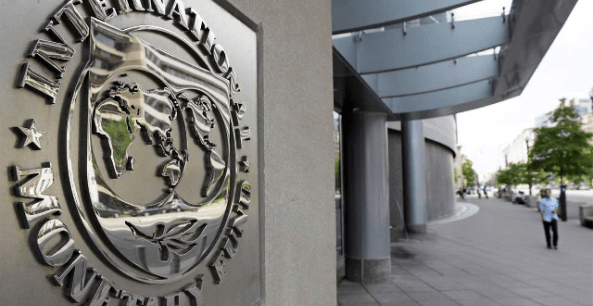The International Monetary Fund has strongly urged the Central Bank of Nigeria to unwind the regulatory forbearance granted to Deposit Money Banks during the COVID-19 pandemic.
It also cautioned against the Federal Government over the proposed amendment to the Act establishing the apex bank, saying the autonomy of the central bank must be preserved.
The position of the Fund was contained in the Article IV Staff Consultation Report of the Board of Governors of the global organisation, which was released on Thursday in Washington DC, United States.
Although the fund didn’t give details on the waivers granted to the banks, it emphasised the importance of close monitoring of the institutions for financial sector risks.
The report read, “Directors emphasised the importance of close monitoring of financial sector risks. They supported the increase in the minimum capital for banks and urged the CBN to unwind the regulatory forbearance introduced during the pandemic. Directors acknowledged the recent improvements in the AML/CFT framework and called for sustained action to exit the FATF grey list. They supported the authorities’ efforts to foster financial inclusion and deepen the capital market.”
The IMF asserts that the legal and operational framework surrounding monetary policy in Nigeria needs fortification.
Furthermore, the IMF lamented the absence of a clear hierarchy among the objectives of the CBN, coupled with the inclusion of government representatives on the Board of Directors and potentially the Monetary Policy Committee, as outlined in the 2007 CBN Act.
This situation, according to the IMF, hinders the effectiveness of monetary policy operations and creates ambiguity in terms of accountability to the public.
It also stressed that the 2007 CBN Act needs to be modernised as recommended by the 2021 Safeguards Assessment, to enshrine the primacy of price stability, and strengthen central bank autonomy and governance arrangements. There is heavy reliance on monetary financing of the fiscal deficit.
The report read in part, “Directors supported the authorities’ intentions to shift to an inflation targeting regime and recommended strengthening central bank independence and communication to ensure a successful transition.
“They recommended caution regarding amendments to the Central Bank of Nigeria Act that might weaken the central bank’s autonomy. They encouraged further progress in implementing the outstanding recommendations from the 2021 safeguards assessment.
“Directors commended the authorities for restarting the cash transfer programme and emphasised the urgency of scaling it up to mitigate acute food insecurity. They welcomed the authorities’ work on a comprehensive revenue mobilization strategy including boosting tax enforcement and broadening the tax base.
“They stressed the importance of keeping a tight monetary policy stance to put inflation on a downward path, maintaining exchange rate flexibility, and building reserves. Directors welcomed the removal of foreign exchange market distortions and encouraged the authorities to continue improving the functioning of the FX market, including by adopting a well-designed FX intervention framework.”
SOURCE: PUNCHNG











